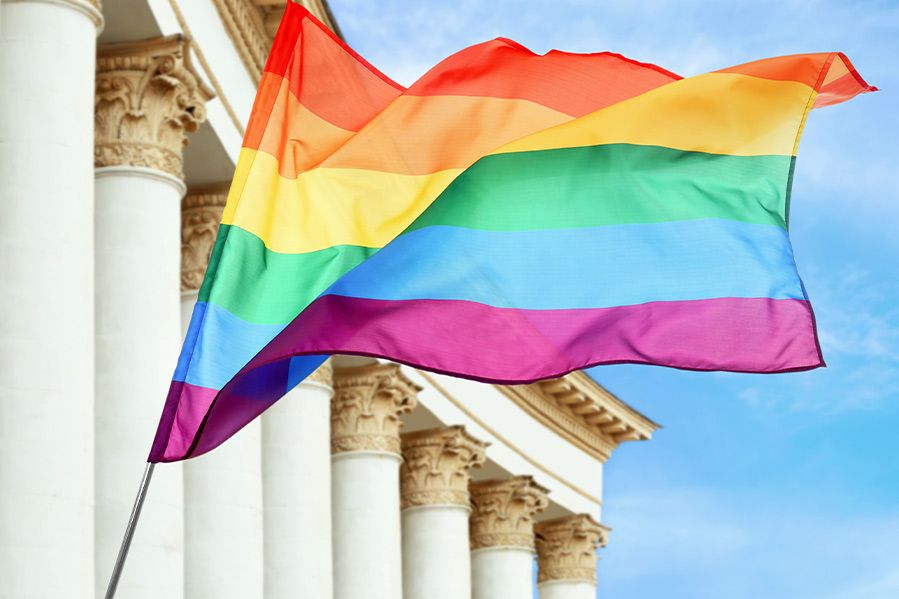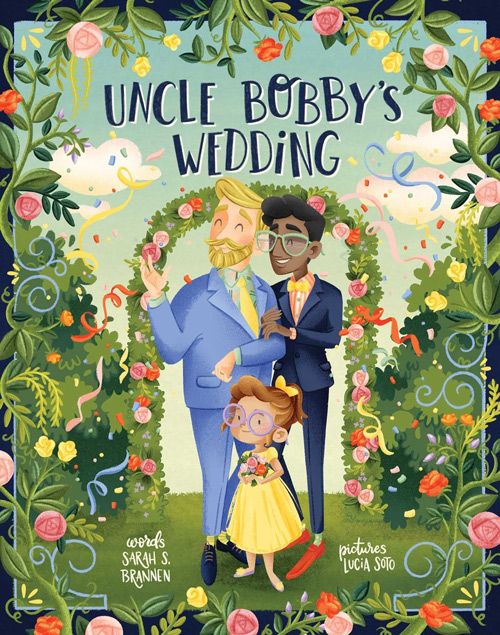
An upcoming Supreme Court case has the potential to expand Florida’s infamous "Don’t Say Gay" law nationwide.
The Supreme Court heard oral arguments this week in Mahmoud v. Taylor, a case which could lead to widespread restrictions in how schools can teach LGBTQ+ curriculum.
The lawsuit, brought by an alliance of Muslim and Christian parents out of Maryland, could significantly broaden parental rights when it comes to what kids are taught in school about the LGBTQ+ community.
And, early indications are that the court intends to side with parents who object to LGBTQ+ content.
When Books Become Battlegrounds

Here's the backstory: In 2022, Montgomery County Public Schools (MCPS) in Maryland expanded their book selection for young children, adding a handful of picture books with LGBTQ+ themes or which promote LGBTQ+ acceptance to their curriculum.
The books were reviewed by a content supervisor and determined age-appropriate, then placed on the bookshelf for kids to find and read on their own. Teachers are not required to read or teach from the books at all.
Six parents in the district objected to the new book selections and sued the district, demanding the district warn them when their kids might learn anything about the LGBTQ+ community.
They insist parents must be notified any time their children will receive “instruction on gender and sexuality in violation of their parents’ religious beliefs” – and give them the option to opt out.
It’s currently unclear if any of the books were taught in class, or if any students even picked up the books at all.
The offending books are simply “joyful stories of folks who happen to be part of the LGBTQ+ community,” said MCPS communications director Jessica Baxter. They “celebrate and positively portray LGBTQ+ identities.”
What Is the "Don’t Say Gay" Law?
Quick recap: In 2022, Florida Governor Ron DeSantis signed House Bill 1557 into law – informally dubbed the "Don’t Say Gay" law. The wildly controversial bill made national headlines because it essentially made it illegal for public school educators to talk about sexual orientation or gender identity in any context.
It also opened up educators to lawsuits from parents or community members if they mentioned the concept of being gay or transgender at all. Later legal challenges pulled back some of these restrictions, though any sort of curriculum with a focus on LGBTQ+ issues or civil rights wins still remains widely banned in Florida textbooks and classrooms.
Though many copycat bills were introduced elsewhere, "Don’t Say Gay" and its legislative cousins have largely been contained to conservative states – until now.
How Will the Supreme Court Rule?
This week, the Supreme Court gave some early signs about where it is leaning on the issue – and critics are concerned.
During oral arguments, six justices appeared to be convinced that the school district had violated the Constitution by ignoring parents' religious objections.
Based on the initial indications, it seems likely the Court will side with parents in this case. It's yet unclear how broad a ruling the Court may choose to deliver, however.
What Does Mahmoud v. Taylor Mean for Schools?
A ruling in favor of the parents could force educators to send out notifications to parents any time the LGBTQ+ community or queer identity might potentially come up in the classroom.
Critics warn that educators could be stifled, and that sending out advance warning to parents any time the possibility of anything related to queer identity might come up in class is simply untenable, and will only force teachers to avoid the broader subject entirely.
In short: "Don’t Say Gay."
Depending on the Supreme Court’s ruling, important chapters in American history might soon be scrubbed from the history books entirely. Critics say in such an environment, topics ranging from the Stonewall Riots to the AIDS crisis to Obergefell v. Hodges could be eliminated from curricula entirely by teachers worried about classroom disruptions – or even lawsuits from angry parents.
But some fear the implications could be even greater. If the Court establishes a precedent that parents can object to school curriculum on religious grounds, alarmed legal experts say it might not stop with LGBTQ+ issues.
Religious parents have objected to all types of lessons in the past, including topics like evolution, magic, witchcraft, pacifism, and even women achieving things outside the home. Should the Court rule broadly in parents' favor, experts warn those topics could be at risk, too.
In other words, American education might be about to get reshaped for the foreseeable future.
What do you think? Do religious parents have a right to limit potentially offensive topics in their child’s classroom? If so, how far does that right extend?
6 comments
-
It is one thing, for a person to believe in a 3rd gender. It is another thing, to force people, to believe what 3rd genders believe.
The population of 3rd genders, in relation to the total population of the USA, makes 3rd genders a minority population.
3rd genders can marry or have a civil union and I have no objection. That is because of the legal status of partners.
In Hawaii, we have had family members and friends, who were gay, and it was always accepted.
The legal issue really started with the definition of a civil union versus a marriage.
A marriage had more legal rights than a civil union.
That was the major legal sticking point.
To force people to believe in 3rd genders, was where the line in the sand was drawn.
-
No one is forced to believe in "3rd gender" or anything else. You are free to believe what you like, be it fact, fiction, myth, truth, or lie. There are simple realities about our world that exist and whether you, we, or anyone chooses to believe, accept, or not doesn't change the reality of existence.
-
-
Well there you go. An issue that has brought Christians, Muslims and Jews together.
But if the left is not trying to indoctrinate or sway children in these matters, then why the books?
Why all the demonstrations to have them in the schools and...
...why try to remove the parental authority or rights over the matter?
-
Why are some people so trggered by differences? These fake Christians have forgotten the teachings of their Lord and Savior, "Love thy Neighbor as Thyself." Why do these people fear different people? .Remember, if you are ordained by the ULC, you have agreed to uphold our mandate of supporting LGBTQ+ rights as well as acknowledge that "We are all children of the Universe." If you are unable to do that, then you are a hypocrite and do not belong here. How many children have parents and/or family members who are a part fo the LGBTQ community? Being gay is not a choice of lifestyle and anyone who subscribes to that is living in an alternate universe of ignorance. Inclusion, diversity and equity are representative of the diversity of our American population. Grow up and get right with the ULC.


Many schools in the US have forgotten their main job: Give their students the tools needed to succeed in life. The teaching of alternative lifestyles, diversity, inclusion or equity are best left to the parents. We spend more on primary education than most other countries and are yet left with about the worse results measured in student outcomes. This is cheating our children.
I will argue that the teaching about diversity, equity, and inclusion in our public schools is to provide one of the many and important fundamental tools needed to succeed in a life within a nation as diverse as ours.